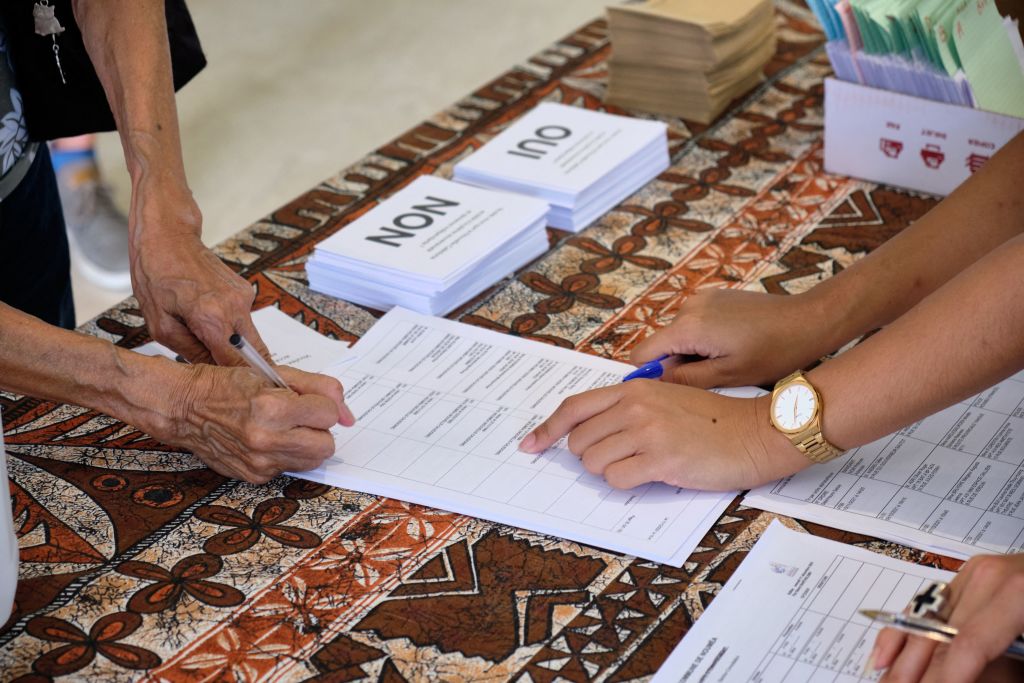New Caledonia votes to stay French as independence movement boycotts referendum


A free daily email with the biggest news stories of the day – and the best features from TheWeek.com
You are now subscribed
Your newsletter sign-up was successful
New Caledonia voted Saturday to remain part of France, Reuters reports.
The South Pacific archipelago has a population of around 250,000. It became a French colony in 1853, gained equal citizenship for its native inhabitants in 1957, and received a degree of autonomy in 1988.
Around 44 percent of eligible voters cast ballots, and of those, 96.5 percent marked "Non" to reject independence. The 1998 Nouméa Accord between France and New Caledonia provided for three independence referenda to be held in 2018, 2020, and 2022. The first two rejected independence by margins of 57-43 and 53-47, respectively.
The Week
Escape your echo chamber. Get the facts behind the news, plus analysis from multiple perspectives.

Sign up for The Week's Free Newsletters
From our morning news briefing to a weekly Good News Newsletter, get the best of The Week delivered directly to your inbox.
From our morning news briefing to a weekly Good News Newsletter, get the best of The Week delivered directly to your inbox.
The landslide in this referendum is due to the pro-independence movement's decision to boycott the vote after the French government refused to postpone it. Representatives of the island's native Kanak people, a majority of whom favor independence, had requested the vote be pushed back because they had not yet emerged from a 12-month period of traditional mourning.
"I'd … like to say how proud I am as president of the republic that the majority of the Caledonian people have chosen France," French President Emmanuel Macron said in a speech delivered Sunday and accessible in English translation via France24.
"This referendum, for us, is not the third referendum. We consider that there are only two legitimate referendums. 2018 and 2020. This referendum is the referendum of the French state, not ours," Roch Wamytan, New Caledonia's Congress president, said on Franceinfo radio.
Under the terms set out at Nouméa, representatives of all stakeholders must now "meet to consider the situation thus created" and to re-negotiate the terms of New Caledonia's semi-autonomy. Some observers, however, worry that the perception among pro-independence Caledonians that the final referendum was illegitimate could lead to instability.
A free daily email with the biggest news stories of the day – and the best features from TheWeek.com
The retention of New Caledonia is a victory for French influence abroad, allowing France to remain active in the South Pacific as Chinese influence in the region grows. The French military maintains a base in New Caledonia — one of only two French bases in the Pacific — and cooperates with the U.S., Australia, and New Zealand on various regional security initiatives.
Grayson Quay was the weekend editor at TheWeek.com. His writing has also been published in National Review, the Pittsburgh Post-Gazette, Modern Age, The American Conservative, The Spectator World, and other outlets. Grayson earned his M.A. from Georgetown University in 2019.
